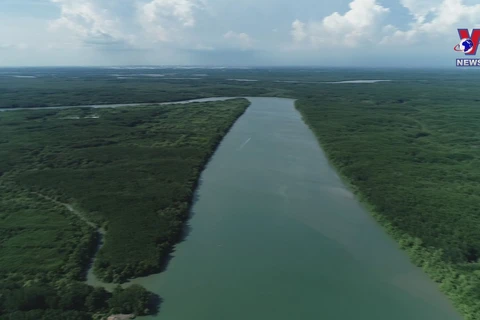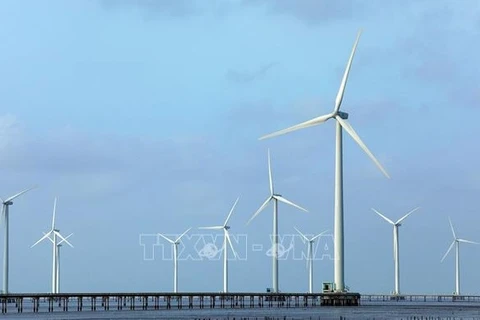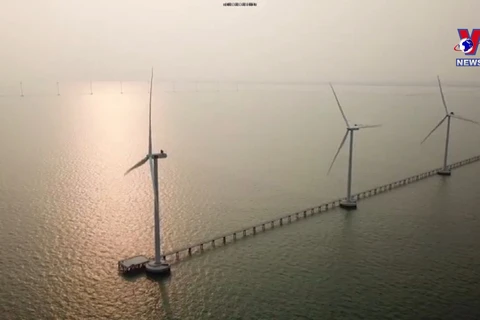
Currently, significant international markets have implemented cross-border carbon adjustment mechanisms throughout the production, business, and import processes. In this context, if businesses fail to decrease the carbon intensity per unit of product, the competitiveness of Vietnamese goods will experience a notable decline.
In response to this situation, the Business Council for Sustainable Development of Vietnam, in collaboration with the Vietnam Chamber of Commerce and Industry (VCCI), the Ministry of Natural Resources and Environment, and the Japan International Cooperation Agency (JICA), organized a business forum focused on green transformation and green finance. The forum aimed to advance the objective of achieving net-zero emissions by 2050.
Turning challenges into opportunities
According to a VCCI survey conducted on 10,000 domestic businesses, 56% of whom said they saw opportunities from climate change. Of these, about 30% believed it is time to restructure and reorganize production, and 17% held that this is an opportunity to create new technology products and services and develop more markets for available products.
In fact, a number of Vietnamese businesses have participated in implementing the zero emissions target. They have initially caught up with international requirements on reducing emissions as well as being ready to implement the Government's policies on responding to climate change.

Speakers representing Coca-Cola Vietnam, VinBus, Daikin Vietnam, and Insee Vietnam appreciate the Government’s significant efforts to create a favorable policy environment with specific regulations on greenhouse gas emissions.
On the management side, Nguyen Tuan Quang, Deputy Director General of the Department of Climate Change under the Ministry of Natural Resources and Environment, said the business community plays an important role in transforming challenges into opportunities. They can develop sustainable production and business operation, as well as creating resources to contribute to reducing greenhouse emissions and promoting green growth in Vietnam.

Fukuda Koji, Chief Advisor of the “Support for Planning and Implementation of the Nationally Determined Contributions in Vietnam (SPI-NDC)” project, highlighted the crucial role and commendable efforts of financial institutions in expanding the portfolio of green investments and mitigating greenhouse gas emissions through capital investments, both on a global scale and within Vietnam.
As of September 2023, the proportion of outstanding green credit loans compared to the total outstanding loans provided by commercial banks ranged from 3% to 10%.
Koji strongly recommended that businesses take proactive measures to enhance their understanding of ESG (environmental, social, and governance) practices and sustainable development. By doing so, they can enhance their ability to access capital opportunities in this field and contribute to a more sustainable future./.























